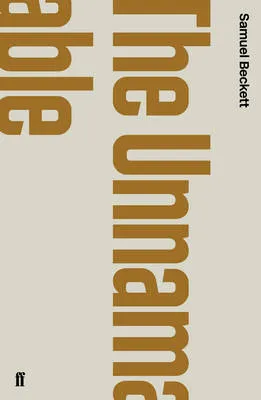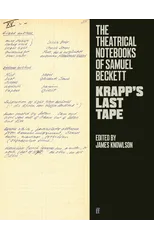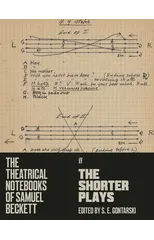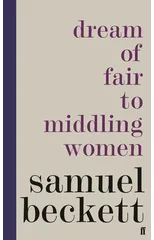The third of Beckett’s post-war novels, after Molloy and Malone Dies, The Unnamable was first published in French, and in Beckett’s English in 1958. ‘Like a great horned owl in an aviary’, the unnamable narrator – so named because he knows not who he may be – sits nowhere and speaks of previous selves (‘all these Murphys, Molloys, and Malones do not fool me’) as so many diversions from the need to stop speaking altogether. As with the earlier novels, the prose has its own indomitable precisions, its afflicted but desirous reasons for being. you must say words, as long as there are any, until they find me, until they say me, strange pain, strange sin, you must go on, perhaps it's done already, perhaps they have said me already, perhaps they have carried me to the threshold of my story, before the door that opens on my story, that would surprise me, if it opens, it will be I, will be the silence, where I am, I don’t know, I’ll never know, in the silence you don’t know, you must go on, I can’t go on, I’ll go on
Samuel Beckett
Samuel Beckett was an Irish playwright, novelist, and poet known for his minimalist and absurdist style. He is best known for his play "Waiting for Godot," which explores themes of existentialism and the human condition. Beckett's works often feature bleak and dark humor, as well as a focus on the futility of human existence. His contributions to literature have had a significant impact on the genre of absurdist theatre and have influenced countless writers and artists. Beckett was awarded the Nobel Prize in Literature in 1969 for his groundbreaking work in the field.




